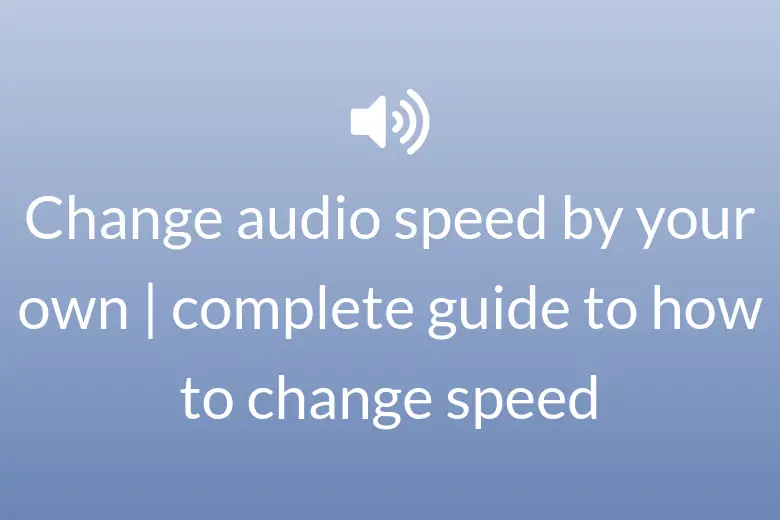We must first comprehend how our brains react to complex stimuli when emerging from sleep. Many of us will be waking up earlier to beat the morning rush as a result of the return to work and the inability to simply roll out of bed and into a Zoom meeting. Therefore, it’s critical to make sure we’re on top of our alarm game.
But what kind of alarm wakes you up with the most alertness? Around 500 BC, Pythagoras posed a similar query. He thought certain songs, melodies that roused the energies, could counteract the drowsiness that waking might bring.
He also seems to have had a point. According to recent research, some alarm sounds do in fact increase our alertness when we wake up.
Particularly “tuneful” alarms (like ABC by The Jackson 5) have melodies that energize the listener and are excellent for productive waking. But in order to comprehend why this is the case, we must first comprehend how our brains react to complex stimuli when awakening from sleep.
Pythagoras believed that playing specific music helped his disciples become more awake and alert. It never feels right to awaken Greg, the way we wake up has an impact on our cognition, as well as how we will feel throughout the day.
In some situations, feeling groggy after waking up has the potential to be dangerous several hours later by impairing our ability to make crucial decisions (like when making them in a medical setting, responding to emergencies, keeping people safe, or while driving).
Sleep inertia is the term used to describe this cognitive state of decreased alertness. As it can have serious consequences while performing high-risk tasks, such as driving, it is a growing source of worry.
- You may be pleased to learn that you can now choose better songs for your alarm ringtone if you typically use the alarm feature of your phone’s default clock app.
- Any song you want to hear as your alarm can be set using popular apps like Spotify and YouTube Music.
- The majority of phones come with a selection of dull ringtones that you are compelled to use because you have no other choice, so this feature is fantastic.
- You can choose songs from these services if you use them, such as Spotify or YouTube Music. It only takes a few simple steps to enable both apps, and you just need to be aware of them.
Just keep in mind that you’ll need to download a third-party app because you can’t do this with your phone’s built-in clock app. To learn more, continue reading.
Waking up brain
Brain imaging techniques have shown that the change from alertness to sleep does not occur via a switch-like system.
The biological processes involved in waking up include increased blood flow to the brain.
- Prefrontal cortical regions, which are crucial for alert performance, have been shown to “start-up” more slowly than other regions, like the basal ganglia, which are crucial for arousal. This means you can be awake, but not quite with it.
- Research has also shown blood flow activity within the brain to be diminished after waking, in comparison to the pre-sleep state. Thus, mechanisms that promote a redistribution of blood flow to the brain, which certain types of sound and music can do, may be necessary for part for alert wakefulness.
- Areas with higher activity (in red) can be seen in a positron emission tomography scan of the human brain. Image source: WikiCommons
- The degree of sleep at the time is another element that affects alertness when waking. Compared to a deeper slow-wave or REM sleep, if you awaken from a light sleep you are less likely to feel groggy.
Theta wave frequencies, which are identified by the brain’s electrical activity, are indicative of a light sleep stage and are connected to drowsiness. Arousal from outside stimuli, like an alarm, can cause someone to wake up suddenly during this stage of sleep.
Delta wave frequencies, on the other hand, are found in deep sleep or slow-wave sleep and are linked to unconsciousness. This is the more challenging sleep stage to fully wake up from.
Age affects how well alarms work. Preteens require an even higher threshold than young adults (18 to 25), who need louder alarms than they do. When you’re 18 years old, you might need an alarm that’s up to 20 decibels louder than when you’re 80.
Tune and frequency
What is the ideal option when choosing an alarm, though? Different alarm sounds may have a positive impact on how well people perform after waking, according to a growing body of research.
We found that temporal frequencies (the pitch of the sound as measured in Hertz) around 500 Hz are more effective at arousing young children than varieties at 2000+ Hz in our systematic review, which was published in 2020.
- Adults are presumed to benefit from the same alarm types, but there isn’t enough research to say whether this holds true for them as well.
- Here is an illustration of a 500 Hz temporal T-3 alarm sound.
- Higher frequencies don’t work as well as voice notifications, like someone shouting “wake up!” However, they are less efficient than 500 Hz tonal beeping alarms, which come pre-installed in the majority of mobile phones.
- Our study also investigates the contribution of melodic qualities to promoting alert wakefulness. We discovered that how groggy someone feels after waking up is also reflected in how they perceive the “tunefulness” of their alarm.
In this situation, users of alarms with melodies they can easily hum along to will feel less groggy than users of a conventional “beeping” alarm.
In light of this, we created a unique rhythmic melody that, when compared to conventional beeping alarms, significantly improved performance both during and after waking. In order to improve alertness and lessen morning grogginess, we created this experimental alarm tone. By Stuart McFarlane
After a brief nap, popular music (which can be interpreted as melodic) has been shown in other studies to be effective at preventing sleep inertia. This effect is heightened if the music is something the listener personally enjoys.
Suitable alarm
How does this affect our daily lives? Well, given everything above, we think the ideal alarm must sound like this:
- You can hum or sing along to the melody quite easily.
- 500 Hz is its predominant frequency, making the key of C5 and
- It is just the right speed—between 100 and 120 beats per minute is ideal.
Also, keep in mind that the alarm should be louder for children and people who tend to sleep deeply.
Considering the built-in alarms on our devices, there is still a great deal of work to be done, especially given how recent this field of study is. Therefore, we believe that the number of custom alarm downloads will grow over time.
However, certain designs (like the one above) have been based on the most recent research to not only encourage arousal but also to provide increased alertness. Most pre-loaded alarms at the appropriate loudness will wake you.








